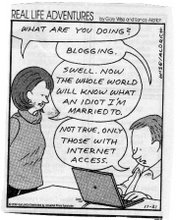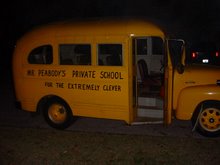Chicken Hawks

Chickenhawk (politics)
From Wikipedia, the free encyclopedia
Chickenhawk (also chicken hawk and chicken-hawk; sometimes designated after a person's name by [c.h.]) is a political epithet used in the United States to criticize a politician, bureaucrat, or commentator who strongly supports a war or other military action, but has never personally been in a war, especially if that person actively avoided military service when of draft age.
The term is meant to indicate that the person in question is cowardly or hypocritical for personally avoiding combat in the past while advocating that others go to war in the present. Generally, the implication is that "chickenhawks" lack the experience, judgment, or moral standing to make decisions about going to war.
The term was first applied to vocal supporters of military action who were perceived to have used family connections or college deferments to avoid serving in previous wars, particularly the Vietnam War. In current usage, the label is used almost exclusively to describe ardent supporters of the Iraq War who have themselves never been in combat; it is seldom if ever used with respect to supporters of the (more broadly supported) war in Afghanistan as such. Those who use the term are generally but not always on the anti war political left; political right in favor of military action are generally but not always on the receiving end of the insult. The label is not usually applied to women (who were historically, in most countries, barred by law from serving in combat). People who use the term have not necessarily been in the military themselves; people labeled "chickenhawks" have sometimes served in the military, but have not seen combat.
Critics argue that the term represents an ad hominem argument, that it is historically unsound, that it is inconsistently applied, and/or that it suggests ideas that are contrary to fundamental American principles, such as the ability for people to state an opinion supporting the use of military force without needing to have served in the military themselves.
Origin of the term
Although also a name for a type of bird, in political usage chickenhawk is a compound of chicken (meaning coward) and hawk (meaning someone who advocates war, first used to describe "War Hawks" in the War of 1812). The earliest known print citation of chickenhawk in this sense was in the June 16, 1986 issue of The New Republic. (The magazine referenced the term in a way that suggests it was already in usage.) An association between the word chickenhawk and war was popularized several years earlier in the 1983 bestselling book Chickenhawk, a memoir by Robert Mason about his service in the Vietnam War, in which he was a helicopter pilot. Mason used the word as a compound oxymoron to describe both his fear of combat ("chicken") and his attraction to it ("hawk"), a slightly different use of the term which nonetheless might have inspired the current usage.
Previously, the term war wimp was sometimes used, coined during the Vietnam War by Congressman Andrew Jacobs (Democrat–Indiana), a Marine veteran of the Korean War. Jacobs defined a war wimp as "someone who is all too willing to send others to war, but never got 'round to going himself". This example has often been attached to current Vice President Richard Cheney, who in his youth received five draft notices but sought deferment to all of them claiming he had "more important business". Another term used in military circles, also occasionally referring to out-of-touch generals, is "armchair warrior".
A much lesser used term is "eagle dove", implying someone who has been in the military who later advocated a dovish position. This may not necessarily mean someone is an absolute pacifist, but one who may state that war is not always the answer, despite the fact they personally have a service record.
Another related term sometimes used is "chickendove" which is used to describe someone who is opposed to military action but is said to lack the convictions to take action on it, such as serve as a human shield, or take their complaints to the enemy.
History of the term's usage
The use of the term chickenhawk to describe a "hawk" who has never been in combat became more popular when members of the "Baby Boom" generation who had not served in the Vietnam War began entering national politics. Dan Quayle, a "hawkish" conservative Republican, was George H. W. Bush's running mate in the 1988 presidential election. In the campaign, Quayle was criticized for having used family connections to get into the Indiana National Guard in 1969, allegedly in order to avoid going to Vietnam. As Vice President, Quayle became the object of frequent ridicule in popular media; references describing him as a "chicken hawk" can be found in newsgroup archives from 1990. One popular joke from this time, playing on the fact that "Quayle" and "quail" are homophones, was:
Question: what do you get when you combine a chicken with a hawk?
Answer: a Quayle.
In the 1992 presidential campaign, conservative critics of Democratic candidate Bill Clinton questioned the way in which he had avoided service in the Vietnam War. They charged that while Quayle had at least served honorably in uniform, they argued that Clinton had been a "draft dodger" and was thus not suitable to become commander-in-chief. This criticism continued throughout Clinton's presidency, particularly on right-wing talk radio. Liberals countered with the argument that many of Clinton's conservative critics were "chickenhawks" who had themselves avoided being sent to fight in Vietnam. A few Clinton supporters did point out that Clinton had also been in uniform, because as a college student he studied Army ROTC and received training in basic soldier skills.
A notable example of this response was liberal satirist Al Franken's 1996 book Rush Limbaugh is a Big Fat Idiot, which included a chapter called "Operation Chickenhawk." The story details the exploits of a fictional Vietnam War squad made up of Quayle, Newt Gingrich, Rush Limbaugh, Pat Buchanan, Phil Gramm, Clarence Thomas, and George Will—all conservative Republicans who were of draft age during the Vietnam era yet did not serve in the conflict. In the story, the cowardly and incompetent squad bungles a surprise attack on a North Vietnamese Army company and ultimately extricates itself from the battle by fragging its gung-ho lieutenant, Oliver North (a conservative Republican veteran of the war).
Usage of the term continued into the 2000 U.S. Presidential election. Vice presidential candidate Dick Cheney, who avoided the Vietnam War through the use of college and marriage deferments, was often labeled a chickenhawk. Presidential candidate George W. Bush, who had served in the Texas Air National Guard during the Vietnam War but did not go overseas, was also called a chickenhawk. It is incorrect, however, to make the accusation that Bush the Younger "never wore a uniform in his entire life", as National Guard forces are uniformed and considered part of the US military. For example, in a November 15, 2000 article in the Chicago Sun-Times, liberal columnist Richard Roeper criticized what he regarded as Bush's "chickenhawk stance on the Vietnam War."
Subsequently, in the 2004 campaign, Vice President Cheney criticized the voting record of Democratic nominee John Kerry, a Vietnam veteran, suggesting that Kerry's positions on national defense made him unsuitable to be commander-in-chief. Democrats responded by highlighting Cheney's comment that he himself had not served in the military because he had had "other priorities," with Senator Frank Lautenberg calling Cheney "the lead chickenhawk" in criticizing Kerry.
Since the beginning of the Iraq War in 2003, numerous conservative and neoconservative supporters of the war have been labeled "chickenhawks" by liberal opponents of the war. For example, the online edition of the alternative, liberal newspaper The New Hampshire Gazette maintains a "Chickenhawk Database", which they describe as "detailing the means by which various right-wing politicians and personalities avoided military service." The database accuses numerous supporters of the war (all or almost all Republicans) of being "chickenhawks," including conservatives such as Bill O'Reilly and William Kristol.
In May 2006, a group of pro-war bloggers began using the "chickenhawk" label in an ironic (and positive) fashion, describing themselves as the "101st Fighting Keyboardists" with the motto "We Eat Chickens for Lunch".
In July 2006, blogger Glenn Greenwald used a narrower definition of the term:
“ Something more than mere support for a war without fighting in it is required to earn the "chicken hawk" label. Chicken-hawkism is the belief that advocating a war from afar is a sign of personal courage and strength, and that opposing a war from afar is a sign of personal cowardice and weakness. A "chicken hawk" is someone who not merely advocates a war, but believes that their advocacy is proof of the courage which those who will actually fight the war in combat require. ”










No comments:
Post a Comment